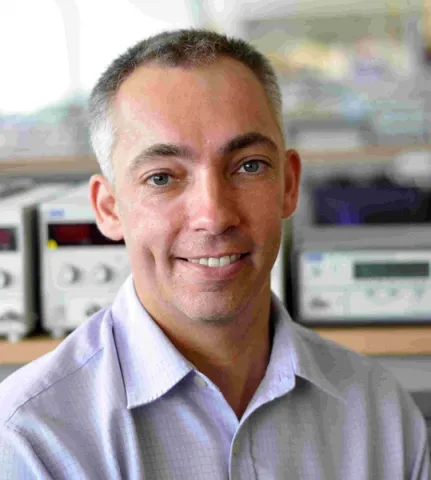About the project
This project aims to develop flexible micro thermoelectric generators integrated into textiles to power wearable electronics. Using low-cost electrodeposition and screen-printing on flexible substrates like Kapton or Mylar, these devices will harvest body heat for self-powered wearables, offering durable, scalable, and practical energy solutions for healthcare, defence, and sports applications.
Wearable electronics such as smart watches, smart glasses or smart pacemakers, have been hailed as the next generation of mobile electronic gadgets that can transform our daily lives. Despite the explosive growth of wearable technology the majority of wearable devices are still powered by batteries that require frequent recharging and replacement even though these devices require energy autonomy for an extended service time without the user’s intervention.
A possible solution for the realization of self-powered wearable devices is the generation of power from body heat using flexible thermoelectric (TE) generators. TE devices have the ability to convert heat directly into useful electricity based on the Seebeck effect. TE devices have many advantages such as solid-state operation with no moving parts, zero-emission, silent operation, vast scalability and high reliability with no maintenance and long operating lifetimes.
Despite these merits there are a number of drawbacks of existing TE generators which include low efficiency, large size, brittleness and inflexibility as they are fabricated onto rigid substrates. Researchers have demonstrated harvesting sufficient energy from body heat to power a wireless ECG system using such modules but the lack of flexibility means it is not a practical solution.
To overcome these limitations the aim of the current project is to produce a micro thermoelectric generator on flexible substrates such as Kapton, Kynar or Mylar and employ low-cost, room temperature scalable electrodeposition approaches coupled with screen printing of thermoelectric inks. The flexible nature of these devices will enable a practical solution to the application in e-textile fabrics and clothing for applications in defence, healthcare and sports.
The School of Chemistry and Chemical Engineering is committed to promoting equality, diversity inclusivity as demonstrated by our Athena SWAN award. We welcome all applicants regardless of their gender, ethnicity, disability, sexual orientation or age, and will give full consideration to applicants seeking flexible working patterns and those who have taken a career break.
The University has a generous maternity policy, onsite childcare facilities, and offers a range of benefits to help ensure employees’ well-being and work-life balance. The University of Southampton is committed to sustainability and has been awarded the Platinum EcoAward.

